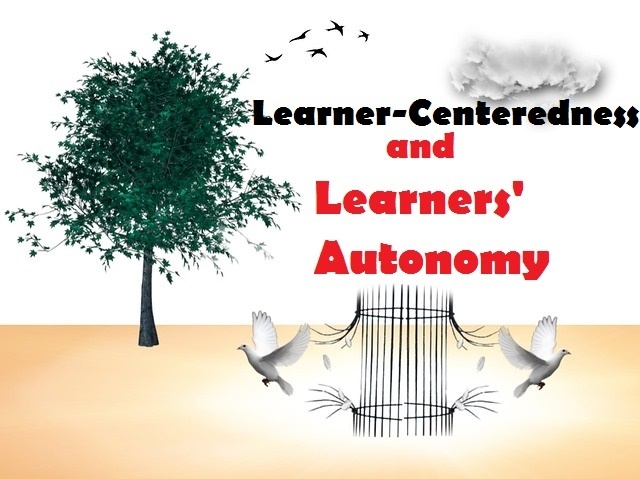Teacher burnout
As stated by the fabulous French poet and novelist Victor HUGO: “he who opens a school door, closes a prison”, it is self-evident to everyone the vital role education plays. It is the bona fide vehicle of the development and actual progress of any human community. This is genuinely the ever-acknowledged reality.
Further elaboration of the quote evidently yields that teachers have largely taken part in this honorable mission and are, therefore, in many respects, considered the nucleus of any positive change. However, the very recent events that are displayed in social media and elsewhere reflect the brittle situation that the teachers of today endure. Immorality, at its clearest pictures, destroys their dignity and self-assurance. Moreover, no single decision is made to rectify the situation; which leaves no choice but to predict the worst-case scenarios in the forthcoming days.
Hence, the two above questions, which are used to entitle this article, remain pivotal and deserve a considerable amount of attention to be talked over. Recently, I have been surprised by the fact that a number of teachers worldwide quit. The case is increasing by the time. In Morocco, however, teachers don’t quit in the actual sense, but a noticeable burnout is looming around, which in turn raises a plethora of questions. It is an issue that has been the core topic of several discussions.
I, in actual fact, have heard that even the most highly qualified teachers who are fond of teaching eventually become emotionally and physically drained and, ergo, think about quitting. It is my belief that this is something that must be voiced on a large scale.
In this respect, the current article brings in the sine qua non factors that ostensibly contribute to this rapid unprecedented teacher burnout. All the ideas and examples that will be pointed here out afterward are the result of actual discussions undertaken previously with a number of colleagues, and some of them, in fact, reflect my personal experience in the workplace. For that matter, they are context-based and SHOULD NOT BE TAKEN FOR GRANTED AT ALL.
Factors that cause teacher burnout
One of the foremost factors that I’m sure lead to teacher burnout is the school culture. It is a well-documented fact that the context where individuals live or work will exert a huge influence on them in a number of ways. It has been continuously disclosed that the school culture is indispensable to the success of what takes place inside the classroom (Black & Wiliam, 2005).
By the school culture, I, as a matter of fact, refer to the quality of teachers, staff, learners, the kind, and the nature of interactions that prevail within the school setting. The result is surely determined when a teacher works in a school where conflicts and personal considerations are prioritized. Disrespect, contempt, and hatred are the values that dominate this community. No dialogue among the staff at all due to trivialities, which in effect, minimizes cooperative responsibility and promotes chaos and disorder.
The second factor pertains to learners. Unfortunately, there is a common misconception that the grade matters more than the learning itself. The latter becomes “measurement-driven and highly superficial” which de-energizes many teachers. They spend massive time searching, planning, designing, organizing, and teaching but in vain. All of this is lost in the ocean of ignorance.
Along the way, a number of teachers feel bored and gradually get burned out due to the regular routines. The lack of initiatives that target teacher professional development worsens the situation. In many cases, teachers are inactive because of the lack of platforms that allow them to discuss, exchange knowledge, share classroom practices, inspire and get inspired, reflect, and learn more.
The fact that the teaching profession is very tiring and energy-consuming remains unarguable and generally assumed to be true. No one would deny that for any consideration. The case becomes hard when teaching overcrowded classes. Teaching 47 students per class is apparently not an easy task. Why does it have to be like this? I don’t know, but if this reflects anything, it, at least, reflects several things, inter alia, the conspicuous and deliberate denigration of public education, marginalization, reform deficit, and crisscross.
There is a radical mismatch between the theoretical perspective from which Moroccan policymakers look at things and the daunting reality, namely: the classroom. This doesn’t have to be generalized but I believe there are many teachers who would share the same stance. Taking the general guidelines introduced by the national chart and the recent strategic vision into full account and under the given inhibiting circumstances, teachers can barely draw on a lockstep approach to teaching, let alone, try other innovative approaches and techniques, which brings the issue of quality into question.
Another factor that reflects the daunting reality of reliable teachers is the overwhelming paperwork they have to deal with on a daily basis under the aforementioned circumstances.
Taking into consideration what classroom research recommends, it seems that teachers’ days are filled with assessing stacks of paragraphs and essays that never seem to shrink – but the problem is not just grading. It is, just as educational practitioners and researchers inform, the detailed descriptive feedback given on every single student’s work, which shows them their weaknesses and suggests ways to make further progress.
Finally, teaching remains one of the most difficult professions. It requires flexibility, self-regulated and lifelong learning, creativity, diligence, development of new practices, ongoing reflection, and professional development from the part of teachers.
Given the above long list of requirements, I do believe that the policies, if any, the Moroccan government has developed to address the problems that invade the educational system are misguided. Governments all over the world consider experienced teachers the key element to the implementation of new educational policies and reforms. In Morocco, the future of education is as dark as night and teaching is perceived to be a part-time job. The lack of incentives for improvement is fairly discouraging.
The worst case is that the vast majority of teachers don’t CONTINUOUSLY undergo a systematic appraisal or receive any acknowledgement on their work which disheartens them.
In any event, it is obvious that there are sundry factors that lead to teacher burnout. But, from a personal standpoint, I do believe that no matter what the circumstances are, all teachers are considered the protagonists of a story and its end is inevitably determined by the quality of thoughts and decisions made along the run. Therefore, burnout remains a personal choice, and teachers are required to strive till they thrive.
This article is also published on Moroccopens
References:
- Black, P., & Wiliam, D. (2005). Changing teaching through formative assessment: Research and practice. The King’s-Medway-Oxfordshire Formative Assessment Project. English Literature Review, 223-240.
- Source of featured image








I agree! I believe that education should not be an activity engaged in by government.